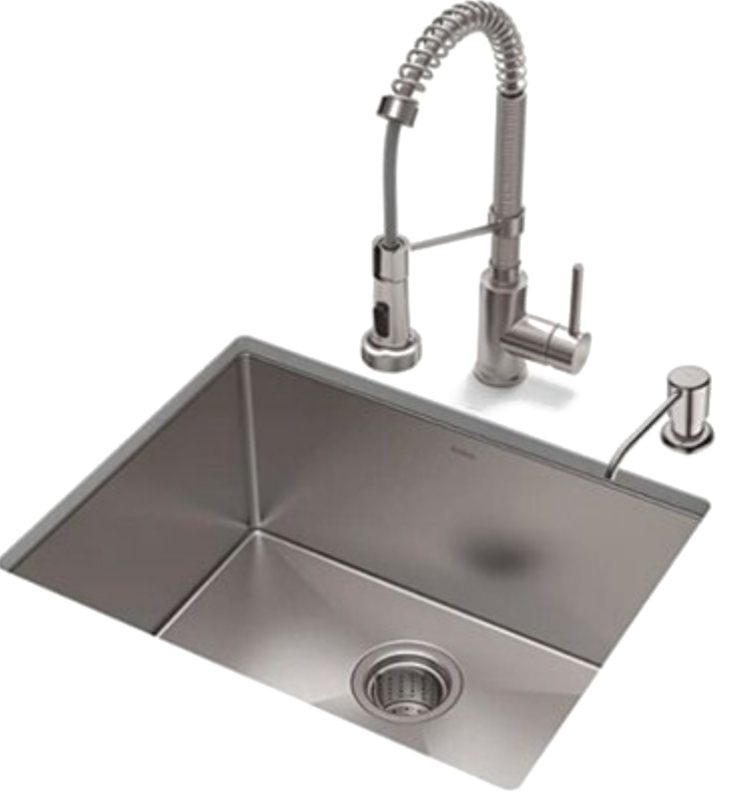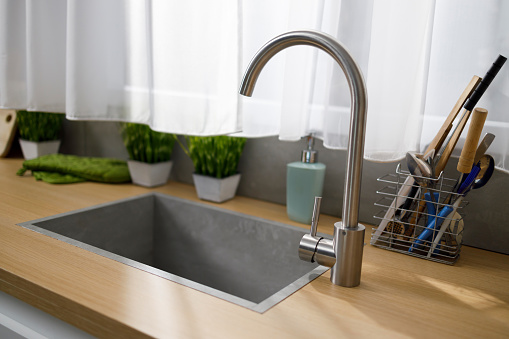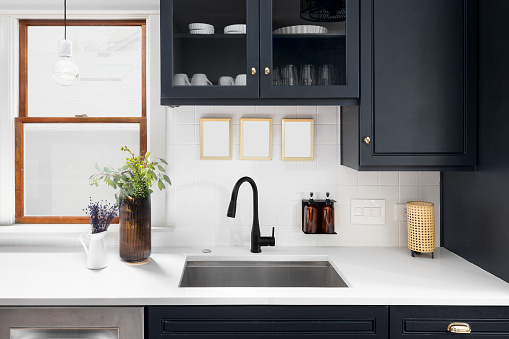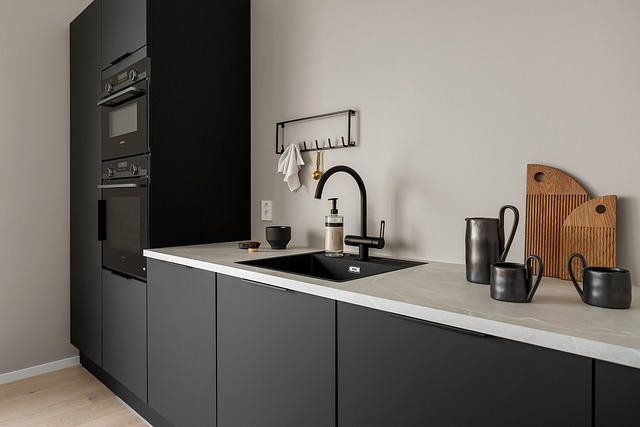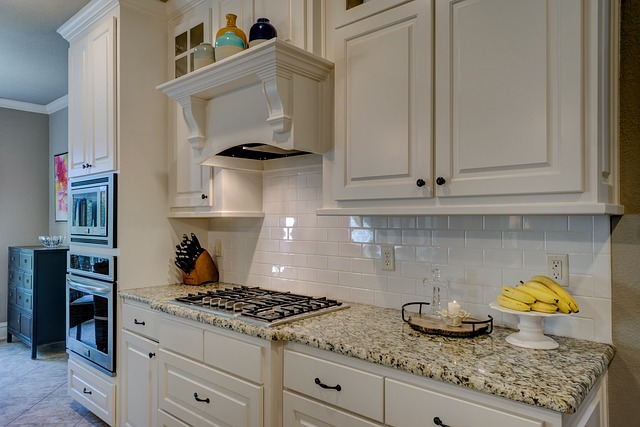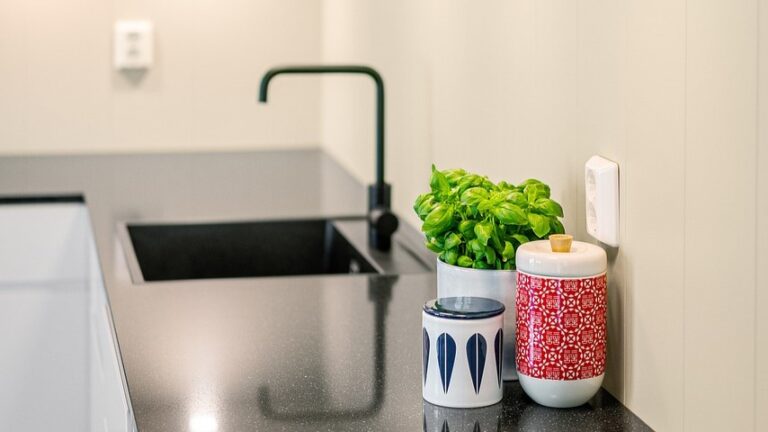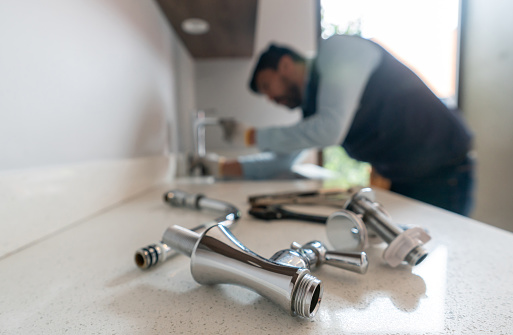To avoid clogs, bad smells, and expensive plumbing fixes, it’s important to keep the drain in your kitchen sink clean. Food particles, grease, and soap can build up over time, making it hard for water to run or blocking drains. This article will teach you easy and useful ways to keep your kitchen drain clean and free of smells.
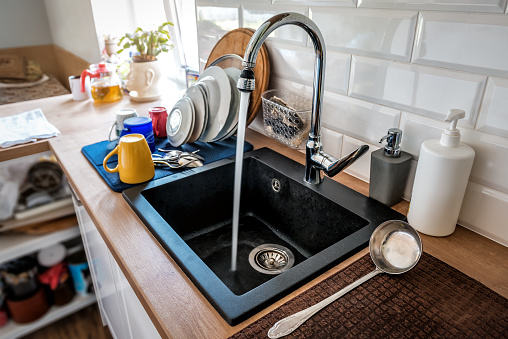
Why you should clean your drain?
There are a few signs that your kitchen sink drain needs to be cleaned. Slow drainage, where water sits in the sink before it drains, is one of the first signs. Often, bad smells are caused by food or grease that gets stuck. If the water is running and you hear gurgling or popping, it means that the air is getting stuck because of a partial clog. Also, if water builds up in the sink, it’s a clear sign that the drain is clogged and needs to be fixed right away. Taking care of these early signs can help keep plumbing problems from getting worse.
Clean Your Kitchen Sink Drain in a Few Easy Steps
Using everyday things, you can quickly and easily clean the drain in your kitchen sink. Pouring boiling water down the drain is one of the fastest ways to clear out small clogs. Baking soda and vinegar mixed together also works well; the fizzing action helps break down grease and other waste. If the clog is really stuck, you can use a plunger to get the stuff out. For tougher blockages, a drain snake or other specialist tool can be used if needed. Using these methods on a regular basis will help keep your drain clean and free-flowing.
What Not to Do When Cleaning Your Drain?
Some mistakes you make when you clean the drain in your kitchen sink can make the problem worse. If you use chemical drain cleaners too often, they can damage your lines over time. Also, pushing things like wire clips down the drain may damage the pipes or make the clog worse. Grease and oil can harden and clog drains, so never pour them down. It’s better to use safer, more effective methods instead of these ones, which can lead to expensive fixes.
Prevention Tips to Keep Your Drain Clean
It’s easier to avoid jams than to clear them out after the fact. Using a drain guard to catch food bits and keep them from going down the drain is a good tip. You should also not pour grease, oil, or coffee grounds down the sink because they can harden and stop the pipes. To keep things from building up, flush your drain often with hot water or a mixture of baking soda and vinegar. By doing these things, you can keep your kitchen drain clean and running smoothly.
Conclusion
It is important to keep the drain in your kitchen sink clean so that it doesn’t get clogged or smell bad. You can keep your drain working well by using easy cleaning methods and following safety tips. Not only does regular cleaning save you time and money, it also keeps your kitchen clean and free of smells.
